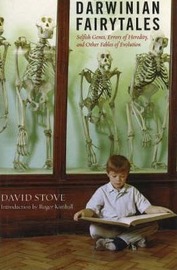
Every shallow pundit seems to know that skeptical philosopher David Hume (1711–1776) eviscerated the arguments of William Paley (1743–1805) for design in the universe, practically before he made them. Right?
A friend writes to remind us that agnostic Australian philosopher David Stove, author of Darwinian Fairytales, did not think so:
… of course Paley did not invent the [design] argument. For centuries before he wrote, it had been carrying conviction to almost every rational and educated mind. It continued to do so for another 50 years after Paley wrote. This is a historical fact which deserves to be known and reflected upon, yet it has been almost completely forgotten. Far from having suffered a fatal blow at Hume’s hands in 1779, the design argument entered the period of its greatest flourishing only between 1800 and 1850. In 1829, for example, the Earl of Bridgewater provided a large sum in his will for a series of books to be written by the ablest authors, which would argue, not from revelation or from authority but rationally, for ‘the Power, Wisdom, and Goodness of God, as manifested in the Creation. ‘ The ‘Bridgewater treatises’ duly came to be published, and they were written by the best authors. In retrospect, one in particular stands out. This was The Hand, (1833), by Sir Charles Bell: the greatest of all British physiologists after Harvey. Yes, that’s right: a whole book on the human hand, as evidence of the existence, intelligence, power and benevolence of God, only 26 years before The Origin of Species appeared! And it is — even if no one in the whole world now cares to know the fact — a very good book indeed.”
David Stove, Darwinian Fairytales: Selfish Genes, Errors of Heredity and Other Fables of Evolution
Yer humble news hack distinctly recalls running into a hand surgeon at a writers’ conference years ago who explained that he had come to believe in God while operating on human hands. No power merely of this universe, he insisted, could produce the human hand.
I bet that doc doesn’t know who Hume or Paley are. His education took him in a different direction.
Didn’t Philip Cunningham go to some trouble recently to set forth a similar case for the human eye? Here’s the link again: The human eye, like the human brain, is a wonder. Which allegedly required no actual design…